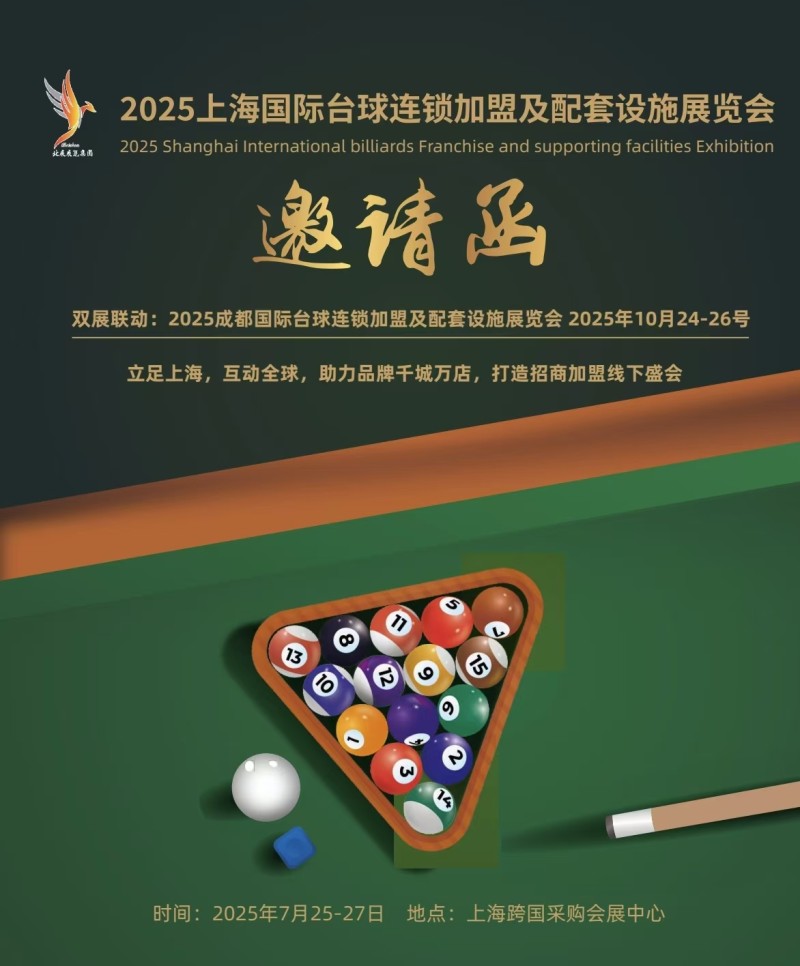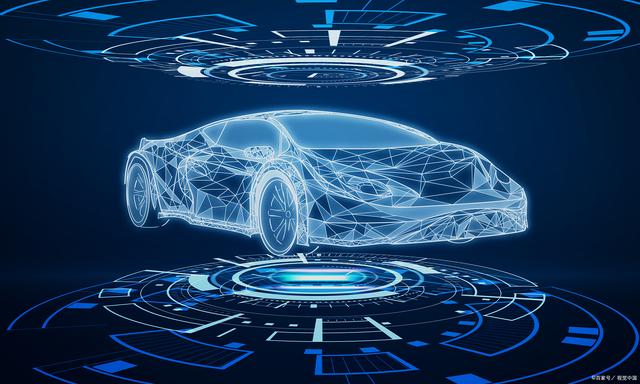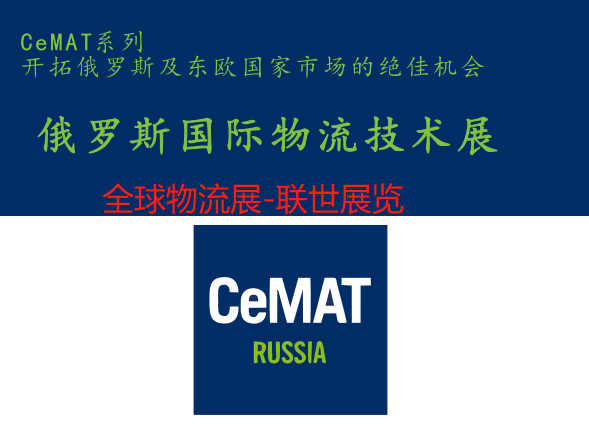2022年8月31日,欧盟发布“数字技能指标2.0”(Digital skills indicator 2.0)版[1]。新版指标按照OECD和欧洲委员会联合研究中心(JRC)合作编写的《构建复合指标手册:方法和用户指南》[2]研制。
近些年来,数字能力(或数字素养、数字胜任力、数字技能)已经引起一些国家和国际组织关注。例如,UNESCO在2018年分析了47个国家数字素养框架,并以欧盟数字能力框架为基础制定了《数字素养全球框架》,以支持对可持续发展指标(SDG)4.42的开发[3],2021年发布的《一起重新构想我们的未来:为教育打造新的社会契约》进一步强调数字素养是学生和教师21世纪的基本素养之一[4]。2019年,联合国儿基会发布《儿童数字素养:探索定义与框架》[5]。2020年,世界银行发布《数字技能:框架与项目》(见图1)[6]等。

图1
鉴于此,我们就欧盟在这方面的探索进行梳理。
一、欧盟数字能力政策发展
欧盟对数字能力的重视,大体可追溯自2006年,这一年欧盟发布了终身学习关键能力参考框架,数字能力(digital competence)被作为8个关键能力之一而提出[7]。2018年欧盟更新了这8个终身学习关键能力[8](见图2),但“数字能力”的名称保留没变。

图2
随后,为指导成员国推进终身学习关键能力的培养,欧盟又相继开发了其中几个的具体框架(见图3),“数字能力框架”最早被开发,并且更新也比较频繁,足见其重视。

图3
首版“数字能力框架”(DigComp)于2013年开发完成[9];2016年开发完成2.0版(DigComp 2.0)(见图4),更新了能力领域名称和描述等[10];2018年发布2.1版(DigComp 2.1),主要更新了各项能力的熟练度等级[11];2022年发布2.2版(DigComp 2.2),更新了各项能力在知识、技能和态度方面的案例[12]。

图4
此外,欧盟还开发了针对特定组织/群体的数字能力框架,如2015年发布了“教育组织数字能力框架”(DigCompOrg)[13],2016年发布了“消费者数字能力框架”(The digital competence framework for consumers)[14],2017年发布了“教育者数字能力框架”(DigCompEdu)[15]等(见图5)。

图5
为支持数字能力框架的落地实施,2018年欧盟还开发了数字能力框架用户指南[16]。同时,还将开发“数字技能证书”(European Digital Skills Certificate,EDSC)作为2020年发布的“数字教育行动计划(2021-2027)”的行动之一加以强调[17]。这一年,欧盟还发布数字能力自我反思工具[18],数字能力框架在劳动力市场中的实践案例[19]和实施指南[20]。
2021年,欧盟上线“数字技能与工作平台”[21],用户可在该平台通过回答一些问题了解自己数字技能水平,最后可获得一个数字技能的分数和详细报告,如果是Europass[22]注册用户,还可以将测试结果储存到自己的技能页面中。
为推进数字技能证书,2021年欧盟还开展了广泛的征求活动,并于2022年发布了《欧洲数字技能证书可行性研究》报告,分析了来自241位参与者对数字技能证书6个问题的回应情况[23](见图6)。

图6
为了对数字技能进行跨国比较,欧盟还开发了“数字技能指标”(Digital Skills Indicator,DSI)。“数字技能指标”最初是在欧盟委员会2010年发布的“欧洲数字议程”(EU4Digital)中被提出,该议程建议开发“数字能力和媒体素养指标”(indicators of digital competences and media literacy)[24]。
2014年,欧盟对数字技能指标进行了试点开发并使用该套指标对成员国进行了比较[25],2015年起开始正式发布成员国排名情况[26],从2021年开始两年发布一次。
2022年,欧盟根据数字能力框架2.0(DigComp 2.0)更新了“数字技能指标”,即2.0版(DSI 2.0)[27]。该指标目前也是欧盟推出的“数字经济和社会指数”(见图7)的一部分[28]。

图7
二、欧盟关于数字能力和数字技能的界定
在不同的时期,欧盟对数字能力(digital competence)[29]也给予了不同的定义,以反映数字时代快速发展的变化。
例如,2006年的定义将ICT技能作为基础,主要为计算机和互联网方面的能力[30]。为了更好地理解和发展数字能力,欧盟在2011年1月至2012年12月启动了系统化的研究活动,并分别于2011年、2012年、2013年发布了《映射数字能力:走向概念化理解》[31]、《数字能力实践:框架分析》[32]、《数字能力网上专家咨询意见》[33]三份报告,通过对数字能力与其他概念(见图8)的辨析,数字能力实践应用框架案例分析,专家咨询意见分析等,对数字能力内涵和要素进行了进一步厘清。

图8
2018年在“终身学习关键能力”中将数字能力界定为在学习、工作和参与社会中自信、批判性和负责任地使用数字技术。包括信息和数据素养、沟通和协作、媒体素养、数字内容创作(包括编程)、安全(包括数字福祉和与网络安全相关的能力)、知识产权相关问题、问题解决和批判性思维等。[34]
三、欧盟两版数字技能指标的比较
数字能力(digital competence)在欧盟的“终身学习关键能力”框架中包括知识(knowledge)、技能(skills)、态度(attitudes)三个方面的内容[35]。数字技能指标(Digital Skills Indicator)仅针对的是“数字能力”中的“技能”维度,即重点关注个人使用数字技术的活动,并认为这些活动需要相应的技能。[36]

图9
《欧盟社会权利行动计划支柱》(图9)提出,到2030年,至少80%的16-74年龄的人口拥有基本数字技能[37],并拥有2000万ICT专家[38](图10)。

图10
按照欧盟《数字经济和社会中指数2022》报告,2021年欧盟16-74岁人口中尽管有87%的经常使用互联网,但是只有54%的拥有至少基本数字技能,2021年欧盟ICT专家只有890万(相当于劳动力的4.5%)。[39]
欧盟2014年发布的首版“数字技能指标”是根据2013年发布的“数字能力框架”制定的,基于数据可获得性[40],最终确定的一级指标(领域)包括“信息”、“交流”、“内容创建”、“问题解决”等4个[41],二级指标共20个,每一个一级指标都分为三个水平,分别为“无”(none)、“基本”(basic)、“基本以上”(above basic)。(见表1)。
指标集成后即总体上则分为四个水平,分别为“无”(no)、“低”(low)、“基本”(basic)和“基本以上”(above basic)。按照这一指标体系计算,2012年的数据显示23%的欧盟人口没有数字技能。[42]
表1

2022年发布的新版“数字技能指标”(DSI 2.0)根据2016年发布的“数字能力框架2.0”(DigComp 2.0)制定,一级指标与后者保持一致,具体为“信息与数据素养”、“交流与合作”、“数字内容创建”、“安全”、“问题解决”(见表2)。二级指标共30个,每个一级指标划分为三个等级,分别为“基本”(Basic)、“基本以上”(Above basic)和“至少基本”(At least basic)。
指标集成后即总体上则划分为8个水平,分别为“基本以上”、“基本”、“至少基本”、“低”(low)、“差”(narrow)、“有限”(limited)、“无”(no skills)、“无法测评”等。[43]与第一版相比,首先是在一级指标上将增加了之前因缺少数据来源的“安全”领域,另外,其他四个一级指标下的二级指标均做了增加。
表2

四、结语
欧盟从2006年开始关注数字能力算起至今已有16年,如此坚持尽管可以从多个角度来解释,但是其中两个我们认为是不可忽视的。
一是欧盟历来重视超前布局,数字能力的提出是基于其对数字经济和数字社会发展的趋势而做出的研判。这种超前布局已经成为了欧盟的一个传统,并产生了一些国际影响。例如,前面我们提及的UNESCO开发的《数字素养全球框架》就是以欧盟数字能力框架2.0为基础开发的。
再如,尽管目前教育应对工业4.0的讨论还在持续发热,但是2021年欧盟已经提出工业5.0的概念,并构建了“以人为本”“可持续性”和“富有韧性”的理念框架(见图11)。[44]

图11
在教育领域,作为支持工业5.0发展的一部分,2022年欧盟发布了系列有关发展绿色能力(或可持续发展能力)教育的文件,如《欧盟成员国环境可持续教育政策与方法》(见图12)[45]、《关于环境可持续性学习的理事会建议》[46]、《绿色能力:欧洲可持续能力框架》(见图13)[47]和《关于绿色转型与可持续发展学习的理事会建议》[48]、《可持续发展能力框架背景文件》[49]等。

图12

图13
对于绿色能力(技能),UNESCO在《一起重新构想我们的未来:为教育打造新的社会契约》也提出应加以重视[50]。
二是欧盟基于国际计算机与信息素养研究(ICILS)报告等发现,在数字世界中成长并不会自动使人具备数字能力。例如ICILS的结果表明,年轻人仅仅通过使用数字设备长大并不能发展出复杂的技能,在迄今为止参加ICILS的14个欧盟成员国中,有9个国家超过三分之一的学生在数字技能方面的分数低于阈值。[51]
在数字能力的发展举措上,欧盟采取了一种可以称为系统化的方法。第一,将数字能力作为终身学习关键能力之一加以强调,确立了其重要地位。第二,推出数字能力框架,而且根据时代发展变化进行及时更新,为成员国实践提供了重要参考。更重要的是,不仅仅制定了公民数字能力框架,而且还制定了教育组织、消费者、教育者的数字能力框架,以全方位加以推进。第三,推出数字技能证书,引领学习者通过提升自己的数字技能来提升就业能力。第四,推出数字技能指标,通过对成员国进行比较评价,为其进一步发展提供支持。
我国目前对数字素养和数字技能也给予了重要关注,例如2021年发布的《提升全民数字素养与技能行动纲要》就提出“将数字素养培育相关教育内容纳入中小学教育教学活动,设立信息科技相关必修课程,打造优质精品教材,开展数字素养相关课外活动。”[52]欧盟在数字能力(技能)方面的探索可以为我国提供一定的参考。
(本工作论文作者系中国教育科学研究院比较教育研究所张永军)
参考文献
[1] European Commission, Joint Research Centre, Vuorikari, R., Jerzak, N., Karpinski, Z. (2022). Measuring digital skills across the EU : digital skills indicator 2.0, Publications Office of the European Union. https://data.europa.eu/doi/10.2760/897803
[2] Michela Nardoi, Michaela Saisanai, Andrea Saltellii, Stefano Tarantolai, Anders Hoffmanii and Enrico Giovannini(2005). Handbook on Constructing Composite Indicators Methodology and User Guide, https://doi.org/10.1787/533411815016
[3] UNESCO(2018). A Global framework of Reference on Digital Literacy Skills for Indicator 4.4.2. https://uis.unesco.org/sites/default/files/documents/ip51-global-framework-reference-digital-literacy-skills-2018-en.pdf
[4] UNESCO(2022). 一起重新构想我们的未来:为教育打造新的社会契约. https://unesdoc.unesco.org/ark:/48223/pf0000382459.locale=en
[5] UNICEF Office of Global Insight and Policy(2019). Digital literacy for children: exploring definitions and frameworks. https://www.unicef.org/globalinsight/media/1271/file/%20UNICEF-Global-Insight-digital-literacy-scoping-paper-2020.pdf
[6] Bashir, Sajitha; Miyamoto, Koji. (2020). Digital Skills : frameworks and Programs. World Bank, Washington, DC. © World Bank. https://openknowledge.worldbank.org/handle/10986/35080 License: CC BY 3.0 IGO
[7] 这8个关键能力具体为:“母语沟通能力(Communication in the mother tongue)”、“外语沟通能力(Communication in foreign languages)”、“数学能力与科学技术基本能力(Mathematical competence and basic competences in science and technology)”、“数字能力(Digital competence)”、“学会学习(Learning to learn)”、“社会与公民能力(Social and civic competences)”、“首创精神和创业精神(Sense of initiative and entrepreneurship)”、“文化意识和表达(Cultural awareness and expression)”。详见:Recommendation of the European Parliament and of the Council of 18 December 2006 on key competences for lifelong learning. (2006). Official Journal, L 394, 10-18. ELI: http://data.europa.eu/eli/reco/2006/962/oj[legislation]
[8] 更新后的8个关键能力分别为:“读写能力(Literacy competence)”、“多语言能力(Multilingual competence)”、“数学能力与科学技术工程能力(Mathematical competence and competence in science, technology and engineering)”、“数字能力(Digital competence)”、“个人、社会和学会学习能力(Personal, social and learning to learn competence)”、“公民能力”(Citizenship competence)、“创业精神”(Entrepreneurship competence)、“文化意识和表达能力”(Cultural awareness and expression competence)。详见:European Commission, Directorate-General for Education, Youth, Sport and Culture, (2019). Key competences for lifelong learning, Publications Office. https://data.europa.eu/doi/10.2766/569540
[9] Joint Research Centre, Institute for Prospective Technological Studies, Ferrari, A. (2013). DIGCOMP : a framework for developing and understanding digital competence in Europe, (Y,Punie,editor,B,Brečko,editor) Publications Office. https://data.europa.eu/doi/10.2788/52966
[10] European Commission, Joint Research Centre, Brande, L., Carretero, S., Vuorikari, R. (2017). DigComp 2.0 : the digital competence framework for citizens, Publications Office. https://data.europa.eu/doi/10.2791/11517
[11] European Commission, Joint Research Centre, Carretero, S., Vuorikari, R., Punie, Y. (2018). DigComp 2.1 : the digital competence framework for citizens with eight proficiency levels and examples of use, Publications Office. https://data.europa.eu/doi/10.2760/38842
[12] European Commission, Joint Research Centre, Vuorikari, R., Kluzer, S., Punie, Y. (2022). DigComp 2.2, The Digital Competence framework for citizens : with new examples of knowledge, skills and attitudes, Publications Office of the European Union. https://data.europa.eu/doi/10.2760/115376
[13] Joint Research Centre, Institute for Prospective Technological Studies, Devine, J., Punie, Y., Kampylis, P. (2015). Promoting effective digital-age learning : a European framework for digitally-competent educational organisations, Publications Office. https://data.europa.eu/doi/10.2791/54070
[14] European Commission, Joint Research Centre, Ferrari, A., Brečko, B. (2017). The digital competence framework for consumers, (,Vuorikari R,editor,,Punie Y,editor) Publications Office. https://data.europa.eu/doi/10.2791/838886
[15] European Commission, Joint Research Centre, Redecker, C. (2017). European framework for the digital competence of educators : DigCompEdu, (Y,Punie,editor) Publications Office. https://data.europa.eu/doi/10.2760/159770
[16] European Commission, Joint Research Centre, Pujol Priego, L., Cabrera, M., Kluzer, S. (2018). DigComp into action, get inspired make it happen : a user guide to the European Digital Competence framework, (Y,Punie,editor,S,Carretero,editor,R,Vuorikari,editor) Publications Office. https://data.europa.eu/doi/10.2760/112945
[17] Directorate-General for Education, Youth, Sport and Culture (European Commission) , European Commission(2020). COMMUNICATION FROM THE COMMISSION TO THE EUROPEAN PARLIAMENT, THE COUNCIL, THE EUROPEAN EConOMIC AND SOCIAL COMMITTEE AND THE COMMITTEE OF THE REGIONS Digital Education Action Plan 2021-2027 Resetting education and training for the digital age,https://op.europa.eu/s/w2w3
[18] European Commission, Joint Research Centre, Clifford, I., Kluzer, S., Troia, S. (2020). DigCompSat : a self-reflection tool for the European digital framework for citizens, (J,Castaño,editor,C,Centeno,editor,R,Vuorikari,editor,M,Cabrera,editor,W,O'Keeffe,editor,Y,Punie,editor) Publications Office. https://data.europa.eu/doi/10.2760/77437
[19] European Commission, Joint Research Centre, Kluzer, S., Centeno, C., O´Keeffe, W. (2020). DigComp at work : the EU’s digital competence framework in action on the labour market : a selection of case studies, Publications Office. https://data.europa.eu/doi/10.2760/17763
[20] European Commission, Joint Research Centre, O’Keeffe, W. (2020). DigComp at work : implementation guide, Publications Office. https://data.europa.eu/doi/10.2760/936769
[21] 详见官网:https://digital-skills-jobs.europa.eu/digitalskills/screen/home
[22] 欧盟学习和职业管理在线免费工具,可创建简历等,详见:https://europa.eu/europass/en
[23] European Commission, Joint Research Centre, Centeno, C. (2022). European digital skills certificate feasibility study, Publications Office of the European Union. https://data.europa.eu/doi/10.2760/645292
[24] European Commission(2010). Communication from the Commission to the European Parliament, the Council, the European Economic and Social Committee and the Committee of the Regions A Digital Agenda for Europe. https://op.europa.eu/s/w2NN
[25] DG CNECT. (2014). Measuring Digital Skills across the EU: EU wide indicators of Digital Competence. https://ec.europa.eu/newsroom/dae/document.cfm?doc_id=5406
[26] 2015-2019年度详细数据可在Eurostat平台查询(http://appsso.eurostat.ec.europa.eu/nui/show.do?dataset=isoc_sk_dskl_i&lang=en),也可以在欧盟数字议程数据库网站(https://digital-agenda-data.eu/charts/country-ranking-table-on-a-thematic-group-of-indicators)查看可视化数据。
[27] 有关该指标框架的介绍也可以通过欧盟网站https://ec.europa.eu/eurostat/cache/metadata/en/isoc_sk_dskl_i21_esmsip2.htm查询。
[28] 有关欧盟“数字经济和社会指数”的信息,可参阅其官网:https://digital-strategy.ec.europa.eu/en/policies/desi
[29] 对于欧盟的“digital competence”,国内学者有的翻译为“数字化能力”(如林海亮:《欧盟<关于终身学习关键能力的建议>及其借鉴意义》,载《教师教育学报》2014年第5期),也有译为“数字素养”(如:常飒飒,王占仁:《欧盟核心素养发展的新动向及动因——基于对<欧盟终身学习核心素养建议框架2018>的解读》,载《比较教育研究》2019年第8期),还有译为“数字胜任力”(如:郑旭东,范小雨:《欧盟公民数字胜任力研究——基于三版欧盟公民数字胜任力框架的比较分析》,载《比较教育研究》2020年第6期),笔者在这里按照字面意思译为“数字能力”。
[30] Recommendation of the European Parliament and of the Council of 18 December 2006 on key competences for lifelong learning. (2006). Official Journal, L 394, 10-18. ELI: http://data.europa.eu/eli/reco/2006/962/oj[legislation]
[31] Kirsti Ala-Mutka(2011).Mapping Digital Competence: Towards a Conceptual Understanding. DOI:10.13140/RG.2.2.18046.00322
[32] Joint Research Centre, Institute for Prospective Technological Studies, Ferrari, A. (2012). Digital competence in practice : an analysis of frameworks, Publications Office. https://data.europa.eu/doi/10.2791/82116
[33] Joint Research Centre, Institute for Prospective Technological Studies, Stoyanov, S., Janssen, J. (2013). online consultation on experts’ views on digital competence, Publications Office. https://data.europa.eu/doi/10.2788/97099
[34] European Commission, Directorate-General for Education, Youth, Sport and Culture, (2019). Key competences for lifelong learning, Publications Office. https://data.europa.eu/doi/10.2766/569540
[35] European Commission, Directorate-General for Education, Youth, Sport and Culture, (2019). Key competences for lifelong learning, Publications Office. https://data.europa.eu/doi/10.2766/569540
[36] European Commission, Joint Research Centre, Vuorikari, R., Jerzak, N., Karpinski, Z. (2022). Measuring digital skills across the EU : digital skills indicator 2.0, Publications Office of the European Union. https://data.europa.eu/doi/10.2760/897803
[37] European Commission, Directorate-General for Employment, Social Affairs and Inclusion, (2021). The European pillar of social rights action plan, Publications Office. https://data.europa.eu/doi/10.2767/89
[38] European Commission, Directorate-General for Communications Networks, Content and Technology, (2021). 2030 digital compass : the European way for the digital decade, Publications Office. https://data.europa.eu/doi/10.2759/425691
[39] European Commission(2022). Digital Economy and Society Index (DESI) 2022 Thematic chapters. https://ec.europa.eu/newsroom/dae/redirection/document/88764
[40] 指标数据来源于“欧盟家庭和个人使用信息和通信技术的调查”(EU survey on the use of Information and Communication Technologies (ICT) in households and by individuals),该调查为年度调查,2002年开始,涵盖了16岁至74岁之间的欧盟人口的代表性样本,技能调查为其中重要部分,每年侧重点通常也不同。详见:Eurostat. ICT usage in households and by individuals (isoc_i). https://ec.europa.eu/eurostat/cache/metadata/en/isoc_i_esms.htm
[41] 2013年发布的“数字能力框架”包括5个一级指标(能力领域),21个二级指标(具体能力),其中一级指标具体为“信息”(Information)、“交流”(Communication)、“内容创建”(Content Creation)、“安全”(Safety)、“问题解决”(Problem solving),由于“安全”领域的数据其时不可获得,所以“数字技能指标”中没有这一指标。
[42] DG CNECT. (2014). Measuring Digital Skills across the EU: EU wide indicators of Digital Competence. https://ec.europa.eu/newsroom/dae/document.cfm?doc_id=5406
[43] European Commission, Joint Research Centre, Vuorikari, R., Jerzak, N., Karpinski, Z. (2022). Measuring digital skills across the EU : digital skills indicator 2.0, Publications Office of the European Union. https://data.europa.eu/doi/10.2760/897803
[44] European Commission (2021).Industry 5.0:Towards a sustainable, human-centric and resilient European industry. https://msu.euramet.org/current_calls/documents/EC_Industry5.0.pdf.
[45] European Commission, Directorate-General for Education, Youth, Sport and Culture (2022). Education for environmental sustainability : policies and approaches in European Union Member States : final report, Publications Office of the European Union. https://data.europa.eu/doi/10.2766/391
[46] European Commission (2022). Proposal for a COUNCIL RECOMMENDATION on learning for environmental sustainability. https://op.europa.eu/en/publication-detail/-/publication/e4d8e839-7767-11ec-9136-01aa75ed71a1
[47] European Commission, Joint Research Centre, (2022). GreenComp, the European sustainability competence framework, Publications Office of the European Union. https://data.europa.eu/doi/10.2760/13286
[48] European Commission(2022). Council Recommendation on learning for the green transition and sustainable development. https://op.europa.eu/en/publication-detail/-/publication/ed4fd6a0-ed58-11ec-a534-01aa75ed71a1
[49] European Commission, Joint Research Centre, Scalabrino, C. (2022). European sustainability competence framework background document : literature review, analysis of frameworks and proposals, Publications Office of the European Union. https://data.europa.eu/doi/10.2760/378627
[50] UNESCO(2022). 一起重新构想我们的未来:为教育打造新的社会契约. https://unesdoc.unesco.org/ark:/48223/pf0000382459.locale=en
[51] European Commission(2022). Digital Economy and Society Index (DESI) 2022 Thematic chapters. https://ec.europa.eu/newsroom/dae/redirection/document/88764
[52] 中国网信网(2022). 提升全民数字素养与技能行动纲要. http://www.cac.gov.cn/2021-11/05/c_1637708867754305.htm.
(本工作论文中图片均来自于所附参考文献,读者可访问参考文献中的网址下载阅读,如需打包下载,请在本公众号后台发送“欧盟数字能力文献”获取链接。文献仅供研究使用。)











